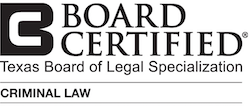What To Do If Pulled Over
A very common question people usually ask is, "What should I do if I am ever pulled over after having a couple of drinks at party, dinner, etc.?"
While every situation is different, the following can serve as a helpful guideline to follow if you ever find yourself in this situation.
1. Remain Silent (or say as little as possible)
2. Ask for an Attorney
3. BE POLITIE!
3. Refuse All Field Sobriety Tests
4. Refuse All Breath Tests
5. Refuse A Blood Test
And Here is Why...
Many people believe that if they are simply compliant with the questioning of a police officer, they likely will let them drive home. Do not make this mistake. You need to realize that once you have been pulled over and the officer begins questioning you about whether or not you have been drinking, you are already under suspicion of Driving While Intoxicated. And remember, you are likely video taped and recorded. Being cooperative does not mean that you will be released. In fact, the more you say and verbalize, the more likely it will be that you may give incriminating evidence to use against you later in court. Many people simply say things out of nervousness or anxiety, and not as a result of intoxication, because they are aware they are being scrutinized by a police officer who will make a determination whether or not they will be arrested for DWI. It important to avoid giving the State of Texas additional evidence to use against you later in court that may lead to a conviction of DWI – a conviction that will stay on your record for life!
There is no better time to exercise your constitutional rights than when you have been pulled over by the police and you are under suspicion of DWI. You will not be able to talk your way out of it, or perform well enough on the physical roadside tests to justify the investigating officer to let you drive home. It is best to realize that there is a strong possibility that you will be going to jail. As such, the best policy is to give the state as little evidence as possible. Our police officers are trained to react on suspicions. Therefore, usually they will make an arrest, and then let justice system sort it out later.
Ask for an Attorney/Remain Silent
If an investigating officer asks you how much you've had to drink (and you have been drinking and/or have taken prescription medications) it is best to say as little as possible. When you are faced with police questions after being stopped in your vehicle it is important to remember that you only have to provide the officer with information contained on the three documents you are required to provide when a traffic stop is initiated: 1) Your Driver's License, 2) Your Registration, and 3) Your Insurance Card. If the information is not contained on those three documents, then politely refuse and ask if you are free to leave.
If the investigating officer persists in questioning you, politely request to speak to an attorney. Once this happens, technically the interview is supposed to be terminated. At this point, the officer likely will take you to jail. However, remember if you do not provide them with incriminating information they won’t have much to use against you later when you are contesting the charges in court.
If you are taken to jail, call our office at 214.702.CARL (2275) and we can help facilitate a fast and speedy jail release. Above all else, do not answer questions pertaining to: 1) When you consumed your first drink, 2) When you consumed your last drink, 3) When you last ate, 4) What types of alcohol you consumed, 5) The number of drinks you consumed, 6) What your normal drinking pattern is, 7) Where you came from, and 8) Whether you have previously taken any medication, prescription or otherwise.
Be Polite
The police officers may try to intimidate you or pressure you into cooperating with their investigation. They are not doing this to help you. In fact, the opposite is true. They are trying to coerce you into offering admissions that will help secure a conviction. Even under pressure it is important not to give freely offer any incriminating evidence. However, when you refuse, do so VERY politely. It is a very unwise decision to argue with or act angry towards the officer for conducting his investigation. Remember, it is possible that a judge, a jury, and a prosecutor will view the arrest later...so remember, be polite.
Refuse All Tests
It is important to understand that if the investigating officer is requesting that you perform a test, it is highly likely the decision has been made that you are intoxicated and you eventually will be going to jail. With this in mind, remember YOU HAVE THE LEGAL RIGHT TO REFUSE EACH AND EVERY FIELD SOBRIETY TEST AT THE ROADSIDE AND AT THE STATION. This includes the Horizontal Gaze Nystagmus ("HGN") test. DWI is a subjective opinion crime made in the interpretation of the investigating officer. Taking this into account, obviously the officer is the only one whose opinion counts when the arrest decision is made. There are a variety of reasons independent of intoxication for why someone would not perform in optimal fashion on the field sobriety tests, including a physical ailment or a medical condition. It is the officer who has the responsibility and burden of gathering the evidence. You do NOT have the burden of proof to prove yourself sober. Therefore, don't allow them to make their jobs easier. The Standardized Field Sobriety Tests Are Designed For Failure! Avoid performing them at all costs.
Refuse the Breath Tests
Even if you believe yourself not to be intoxicated (and not above having a .08 or higher BAC level), do not agree to provide a breath sample when asked. Remember, you are only asked to submit to a breath test ONCE YOU ARE ALREADY UNDER ARREST. The police will not reverse their arrest decision if blow under a .08. Instead, they likely will assume you were impaired due to some other substance aside from alcohol. Prosecutors often try to perform a retrograde extrapolation if the BAC is at or around the .08 level, in an attempt to assert that the driver was above a .08 at the time of driving. They will argue that a certain quantity of alcohol was eliminated from the blood stream from the time the vehicle was driven, to the time the chemical result was obtained.
Many individuals have still been prosecuted even when providing a BAC sample under a .08. Breathalyzers are far from being a reliable indicator of an individuals true BAC level, and can render false-positive results that are not even close to being accurate. You must remember that you are not being asked to submit to a breath test to do you any favors. Instead, the officers are attempting to confirm their assumption of intoxication to help aid in securing a conviction.
There are two types of breath testing devices used in Texas. The Portable Breath Test (PBT) is sometimes utilized, mainly by Texas DPS Troopers, and is generally used as a screening tool. The actual result, however, is not admissable later at trial. The PBT has been deemed inherently unreliable, and therefore the officer cannot testify to any specific number later in court. They can only testify that the PBT detected "the presence of alcohol" and was perhaps used as aid when making the arrest decision.
The Intoxilyzer 5000 is the evidentiary breath testing device used in the State of Texas at the jail once an individual has been arrested and placed into custody. According to the State of Texas Breath Testing Program, officers cannot even ask you to take the breath test unless you are already under arrest for DWI. When you are at the jail you are obviously already under arrest, so don’t make the mistake of thinking they will "un-arrest" you should you "pass" the breath test. Therefore, refuse to blow into either the PBT or the Intoxilyzer 5000.
Refuse a Blood Test
An investigating police officer has the legal right to obtain a search warrant to draw blood if they have the requisite "probable cause" for doing so. However, you should still avoid consenting to a blood draw. Make the police officer work to perform all the necessary steps to obtain a search warrant if he requests a blood sample. Often they will not go through all of the necessary procedures for doing so, which renders the decision moot. Above all else, if you are placed in this position required the officer to produce a valid search warrant, and do not let any amount of coercion lead you to consenting. Often by the time the search warrant is obtained many hours have passed, and it is possible that your BAC would have decreased by a significant amount leading to uncertainty as to the true BAC at the time of driving. There are also many potential problems with blood tests and the way the blood is drawn, collected, stored and transported. There are many avenues to attack a blood search warrant later in court, but it is much more difficult to contest the blood result if you consent to the blood test without demanding they obtain a search warrant.
CALL OUR OFFICE
We can help secure a fast and speedy jail release if you are arrest for DWI. If you have followed what is detailed above, you should be in a very good position to contest your charge in court. After you are released from jail, it is crucial that you seek counsel from an experienced Texas DWI Defense Attorney that can help give you the best possible chance of having you charge dismissed, reduced, or having you found "Not Guilty" at trial. Carl David Ceder is an aggressive DWI Defense Attorney who is committed to protecting the rights and freedom of all citizens accused in the State of Texas. Call 214.702.CARL (2275) at any time to discuss your case with Carl or another representative of his firm.




















